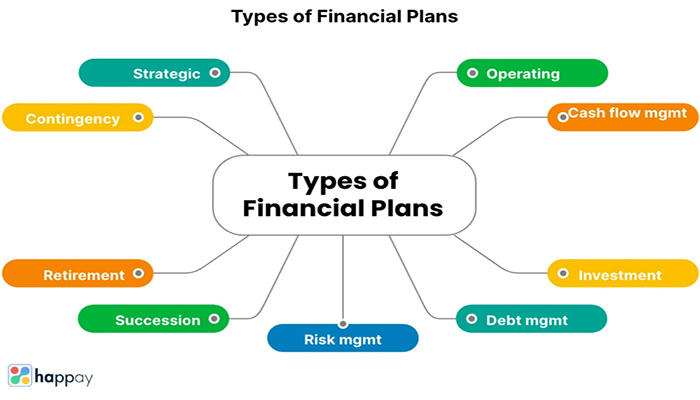How to Manage Your Wealth Properly - 9 Steps to Financial Management
Financial planning is a cornerstone of a healthy relationship, yet it often becomes a source of stress for couples. Differences in spending habits, income levels, and financial priorities can lead to conflicts. However, by working together, couples can create a shared financial strategy that strengthens their bond and secures their future. Here are nine practical steps to help couples manage money effectively and achieve their financial goals.

###1. Understand Each Other’s Financial Situation
Before making any financial decisions, both partners need a clear picture of their combined financial landscape.
•Full Financial Disclosure: Share details about income, debts (credit cards, student loans), savings, and investments. Transparency builds trust and avoids future misunderstandings.
•Assess Strengths and Weaknesses: Identify each other’s financial habits. For example, one partner might excel at budgeting, while the other is better at long-term planning. Recognizing weaknesses, like overspending, allows you to address them together.
2. Set Shared Financial Goals
Aligning your financial goals ensures you’re working toward a common vision.
•Short-Term vs. Long-Term Goals: Differentiate between immediate goals (e.g., saving for a vacation) and long-term objectives (e.g., buying a home or retiring comfortably).
•Balance Individual and Joint Goals: If one partner wants to buy a car and the other wants to save for a home, find a compromise that satisfies both.
•Use the SMART Framework: Set Specific, Measurable, Achievable, Relevant, and Time-bound goals to keep your plans clear and actionable.
3. Budget as a Team

A joint budget is the foundation of financial harmony.
•Joint vs. Separate Accounts: Decide whether to combine finances, keep separate accounts, or use a hybrid approach. Joint accounts simplify shared expenses, while separate accounts offer independence.
•Create a Joint Budget: List all household expenses (rent, utilities, groceries) and decide how to split costs based on income. Include a “fun money” allowance for personal spending.
•Track and Adjust: Regularly review your budget to account for changes in income, unexpected expenses, or shifting goals.
4. Manage Debt Together
Debt can strain a relationship, but tackling it as a team can strengthen your financial foundation.
•Prioritize High-Interest Debt: Focus on paying off high-interest debts, like credit cards, first. Alternatively, use the debt snowball method (paying smaller balances first) to build momentum.
•Create a Repayment Plan: Set a timeline and agree on monthly contributions. Staying organized reduces stress and prevents conflicts.
•Support Each Other: Celebrate milestones, like paying off a loan, to stay motivated.
5. Build Savings and Emergency Funds

Savings provide security and peace of mind.
•Emergency Fund: Aim to save three to six months’ worth of living expenses for unexpected events like job loss or medical bills.
•Automatic Savings: Set up automatic transfers to a savings account to make saving effortless.
•Joint Savings Goals: Save together for big-ticket items like a home, vacation, or children’s education. Break these goals into smaller, achievable targets.
6. Invest as a Couple
Investing together helps you achieve long-term financial goals.
•Understand Investment Options: Learn about stocks, bonds, mutual funds, and ETFs. Each has its risks and rewards, so choose options that align with your goals.
•Create a Joint Strategy: Determine your risk tolerance and diversify your investments to balance risk and growth potential.
•Plan for Retirement: Contribute to retirement accounts like 401(k)s or IRAs. The earlier you start, the more you benefit from compound interest.
7. Plan for Insurance and Estate Needs

Protecting your financial future is crucial, especially if you have dependents or significant assets.
•Life Insurance: If one or both partners are primary earners, life insurance ensures financial security for your loved ones.
•Health Insurance: Evaluate your health coverage to ensure both partners are adequately protected.
•Estate Planning: Create a will or trust to outline how your assets will be distributed, avoiding complications for your family.
8. Navigate Major Financial Milestones
Life’s big moments require careful financial planning.
•Buying a Home: Save for a down payment, secure a mortgage, and agree on shared responsibilities for home-related expenses.
•Starting a Family: Plan for the costs of raising children, including daycare, healthcare, and education.
•Retirement Planning: Work together to save for retirement, adjusting your plans as you age.
9. Communicate Openly About Money
Financial communication is key to a successful partnership.
•Regular Check-Ins: Schedule monthly or quarterly meetings to review your finances, assess progress, and address concerns.
•Handle Disagreements Calmly: Approach money conflicts with respect and a willingness to compromise.
•Build Trust: Be transparent, reliable, and supportive in your financial decisions.
Conclusion
Financial planning as a couple requires collaboration, communication, and commitment. By understanding each other’s financial situation, setting shared goals, budgeting together, and planning for the future, you can build a secure financial foundation. Not only will this improve your financial health, but it will also strengthen your relationship. Start today by having an open conversation about money, setting clear goals, and working together to achieve a prosperous future.
